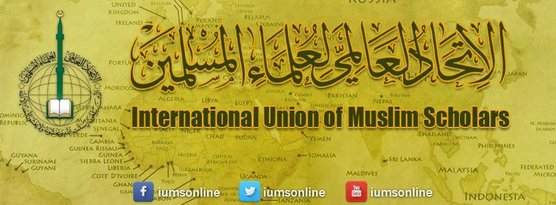
Based on a review of significant evidence from the Quran, sunnah (Prophet Muhammad’s tradition), ijma` (scholarly consensus), qiyas (analogical reasoning), and the opinions of jurisprudence scholars, the following appears:
• First: the term "Dar al-Islam” or the "territory of Islam” and "dar al-harb” or "territory of war” and "Dar al-ahd” or "territory of pact/treaty” are jurisprudence terms that did not occur in Quran and authentic sunnah. This fact was mentioned in the book Bayan Lel-nas (Statement for the People) published by Al-Azhar: "dividing countries into dar kufr, or territory of infidelity and dar Islam or territory of Islam is an issue of ijtihad or personal effort based on the reality situation at the time of the mujtahid scholars that involves no evidence from the Quran or sunnah”. This proves that the scholars of fiqh did not agree over these three terms. The majority of scholars sufficed with the terms dar al-harb and dar al-salam while a group of them added "dar al-ahd” referring to regions that took a pledge from Muslims even if this pact was made with some of them according to the saying by Prophet Muhammad – peace ne upon him - that:"…and this pledge applies to the lowest rank among them…”. Based on this, all countries that have embassies or enjoy diplomatic relations fall within the term "dar al-ahd” or territory of the pact.
Jurist scholars defined the dar al-Islam or territory of Islam as a region where the laws of Islam are explicit (see Badai` al-Sanai` 7/130, Ibn `Abdin 3/243, Al-Mudawwana 2/22, Al-Dosouki 2/184, Hashiyat Al-Begermi 14/220, Al-Insaf 4/121). A group of scholars including the followers of the shafi`i school saw that dar al-Islam doesn’t turn into dar al-kufr under any circumstance even if disbelievers took the territory over and declared their laws in them (Nihayat Al-Muhtaj 8/82), (Asna Al-Matalib 4/204).
• Second: Apparently, evidence and the opinions of jurist scholars demonstrate that the essence of the terms dar al-Islam and dar al-kufr is about security and fear. In this view, if Muslims are able to practice their religious rites and enjoy religious freedom then this territory is a dar al-Islam or territory of Islam. If they were unable to live in peace and were living in fear and harm then the territory is not one of peace or Islam. This is what a group of older scholars including Abu Hanifa and others stated (Badai` Al-Sanai` 7/130, Hashiyat Ibn Abdin 3/153). Renowned scholar Mohamed Abu Zahra – may Allah bless his soul – supported this opinion in his book "Nadhariyat Al-Islam fi Al-Harb” or the Theory of Islam in War, favoring the opinion of Abu Hanifa and scholars alongside him that the essence of the ruling is the security of Muslims, i.e. if a person is safe being Muslim then the territory is one of Islam or else it is a territory of war. In the book, Abu Zahra said that "It’s the closest [meaning] to the meaning of Islam and coincides with the origin of the idea of Islamic wars which were launched to ward off assault”. Sheikh Yusuf Al-Qaradawi took this issue to its origin in his book Fiqh Al-Jihad or the Jurisprudence of Struggle and reached the conclusion mentioned previously that these terms are jurisprudence terms not derived from texts and that the idea of dar al-Islam applies whenever Muslims are safe and their religious freedom granted. In an interview with Sheikh Al-Qaradawi on IslamOnline.net, he said that the countries inhabited by a Muslim majority are in his view territories of Islam and so the rulings of the territory of Islam apply to these countries and it should be sought to persuade governors to apply the rules of Sharia. This is the opinion of many contemporary scholars including Sheikh Faisal Maulawi – may Allah bless his soul – and renowned Sheikh Abdullah Bin Bayyah – may he be preserved.
• Third: Based on the abovementioned, our fatwa is that the Republic of Dagestan where a Muslim majority lives safe, enjoying religious freedom, and where the rites of Islam are practiced is not considered a territory of war and is religiously considered a territory of peace and Islam and so are the republics or regions where a Muslim majority lives in safety enjoying their religious freedom. Hence, it’s not permissible to declare struggle in these territories against Muslims or those who have a pact with Muslims since there is no religious justification for this. The duty meanwhile is to educate, call for Allah, practice the struggle of the word, of wisdom and good advise, and dialogue in better words to practice the law of God in its entirety as Allah Almighty said {Invite (all) to the way of your Lord with wisdom and beautiful preaching; and argue with them in ways that are best and most gracious: for your Lord knows best who have strayed from His Path, and who are guided.} [Quran 16: 125]. That being said, Allah knows best and to Him we turn for assistance.
Written by a needful man to God’s blessings, and approved by Dr. Ali Mohyi Al-Deen Al-Qaradaghi, the Secretary General of the International Union for Muslim Scholars. This fatwa was approved by all scholars, preachers and imams present at the Dagestan conference on the 4th of Muharram 1434 H, 17th November 2012, and the members of the IUMS attending the conference Sheikh Abdul-Rahman bin Abdullah Al Mahmoud, member of the Board of Trustees and Stewardship Officer and Rashid Omari Olwi, IUMS CEO, and Dr. Louay Yusuf the Coordinator of IUMS Affairs in the Russian Federation.